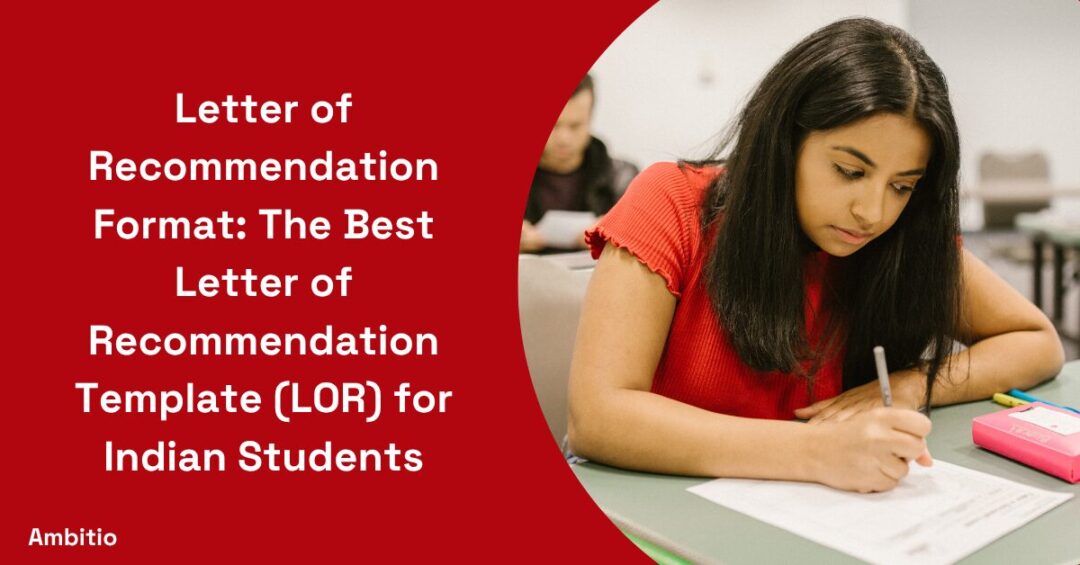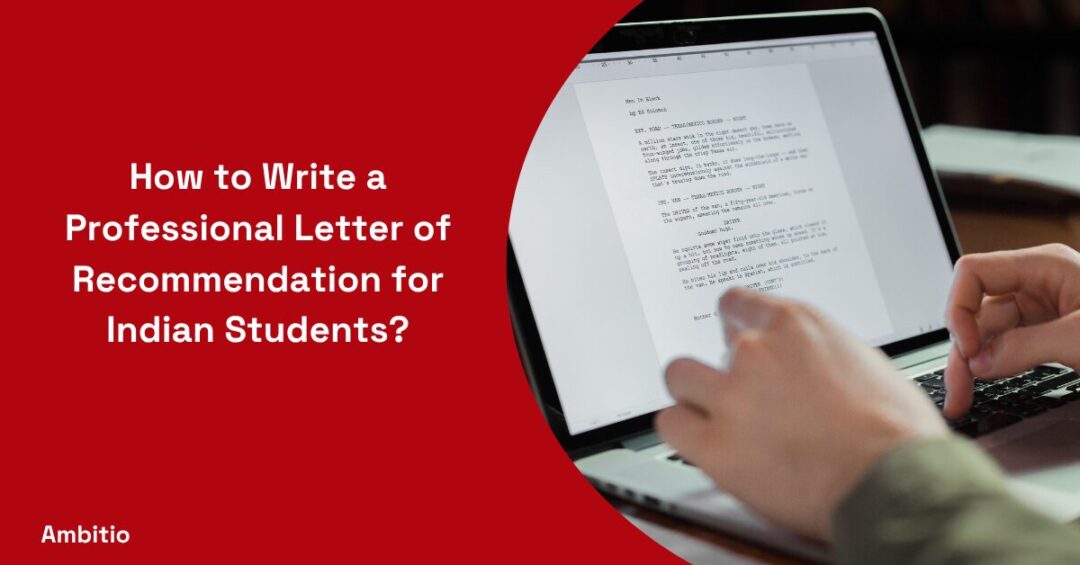21 July 2025
5 minutes read
20 Essential Tips for Writing a Letter of Recommendation for Indian Students
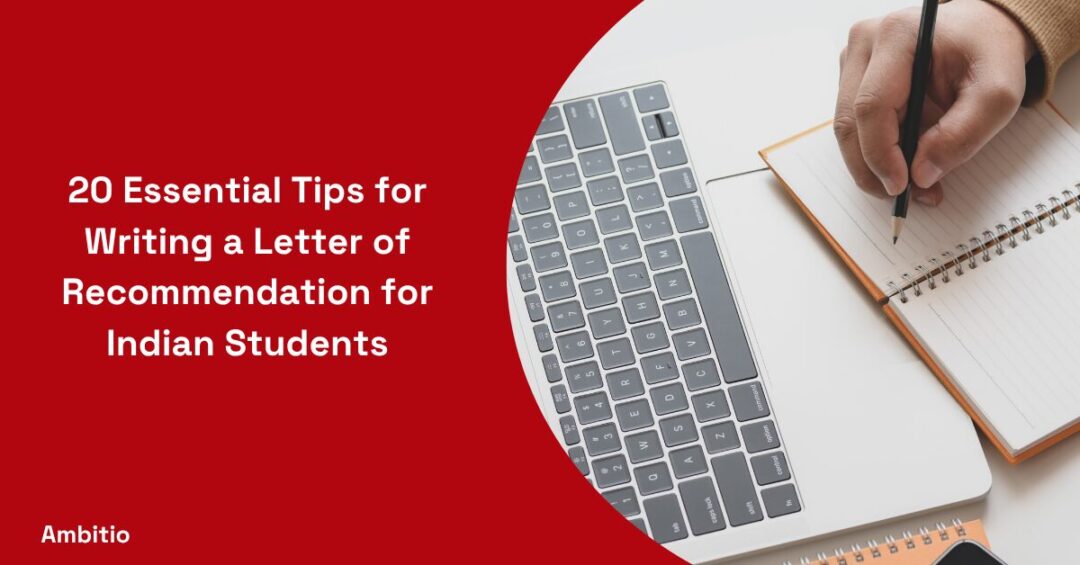
Key Takeaways
- Tips for writing a letter of recommendation: Personalize each letter with specific examples instead of generic praise to make it impactful.
- A clear structure and authentic anecdotes help showcase the applicant’s strengths and align with their goals.
- Start early and follow proper formats to boost acceptance chances at top colleges, grad schools, and fellowships.
Did you know that over 70% of college and grad school admissions committees rate letters of recommendation as a decisive factor in selecting applicants? Yet, most letters fail because they’re generic, lack specific examples, and don’t reflect the student’s strengths or personal qualities.
Many letter writers rush, using vague praise or templates, leaving students at a disadvantage. The solution? Focus on concise, thoughtful letters that highlight the applicant’s skills, work ethic, and achievements, crafted using tips for writing a letter of recommendation effectively.
What is a Letter of Recommendation?
A Letter of Recommendation is a formal endorsement written by a teacher, professor, employer, or counselor to vouch for a student’s qualifications, performance, and personal strengths. Whether for a college application, fellowship, job application, or academic position, it highlights why the applicant is a good fit, using anecdotes, concrete examples, and professional language.
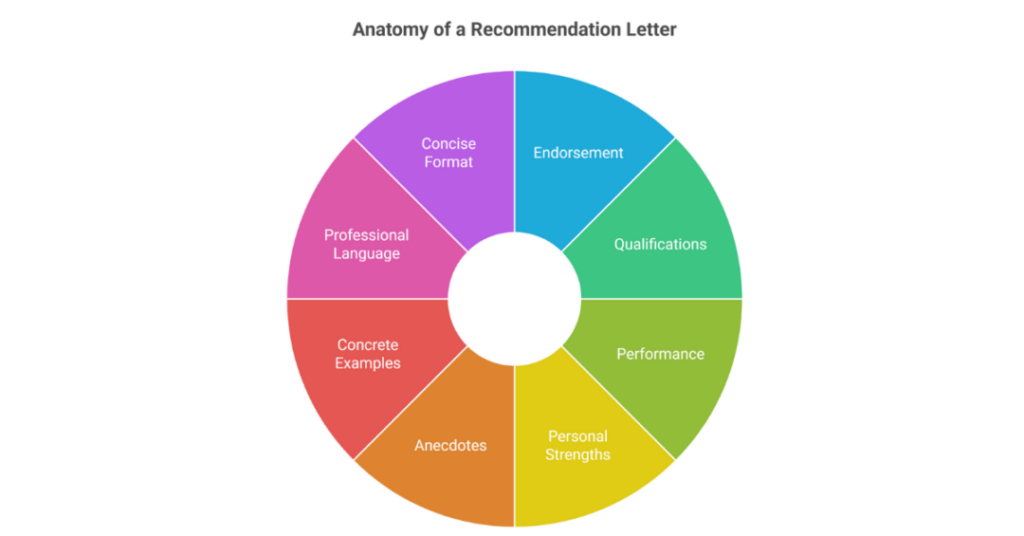
Typically addressed as “To Whom It May Concern,” the body of the letter outlines the student’s work, leadership ability, and strong work ethic, while maintaining a concise, one-page format. A strong recommendation letter reflects a writer’s relationship with the student and attention to detail.
20 Essential Tips for Writing a Letter of Recommendation for Indian Students
Crafting a letter of recommendation for masters in computer science or any college or university program can make or break a student’s application process.
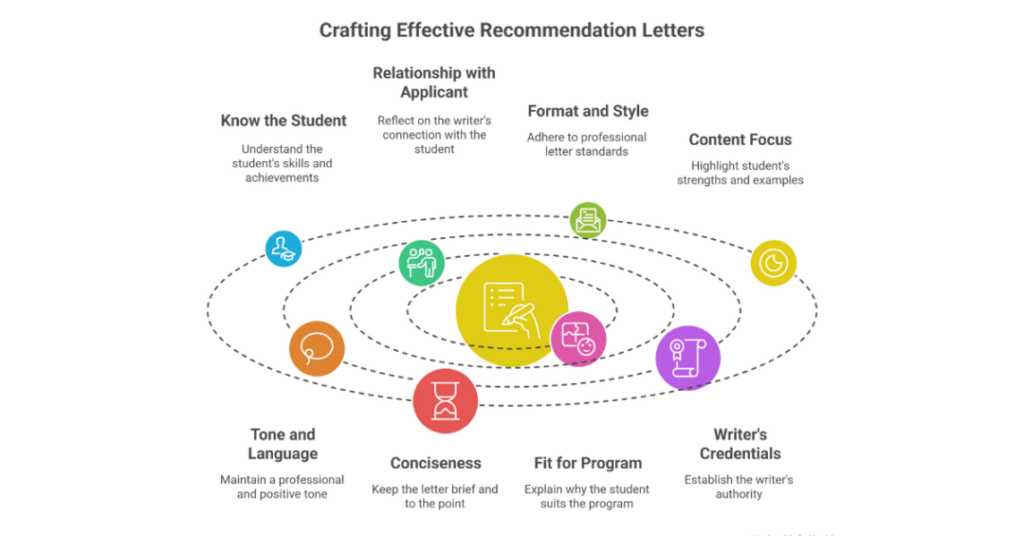
These tips for writing a letter of recommendation will help you write the letter effectively while meeting global standards.
1. Know the Student Thoroughly
Before writing a recommendation letter, spend time to know the student—their skills or qualifications, achievements, and student’s performance. This ensures your reference letter feels authentic and personalized, not generic.
2. Understand the Relationship with the Applicant
A strong recommendation reflects your relationship with the applicant. Mention how long you’ve known them, whether as a teacher with years of teaching or as a mentor. This adds credibility to your academic letter of recommendation format.
3. Follow the Correct Academic Letter of Recommendation Format
Most colleges or universities prefer a professional, business letter style with proper letterhead, date (yes, does a letter of recommendation need a date?—absolutely), and a one-page length. A neat format makes your reference letter stand out.
4. Address the Letter Properly
If unsure, use “To Whom It May Concern,” but ideally, check and consider the from the university to address it correctly. A named addressee shows extra time and attention to detail.
5. Focus on Student’s Performance and Strengths
The body of the letter should highlight student’s work, personal strengths, leadership ability, and skills or qualifications. Include concrete examples rather than just superlatives like “outstanding.”
6. Use Anecdotes and Specific Examples
Strong writing skills mean supporting your praise with anecdotes—projects, research, or achievements the student has experienced. This gives weight to your endorsement.
7. Keep the Tone Professional and Positive
While writing a strong letter, maintain professional language and avoid slang. Don’t exaggerate—balance praise with honest observations, addressing perceived weaknesses subtly if necessary.
8. Keep It Concise and One Page
Wondering how long should a letter of recommendation be for college? Stick to one page. Admissions officers value brevity and tips to help you punctuate effectively can make it crisp and readable.
9. Explain Why the Student is a Good Fit
Clearly explain why the applicant is a good fit for a specific college or university, program, or role. Link their skills and qualifications with what the institution seeks.
10. Include Your Credentials and Years of Teaching
Establish authority by mentioning your years of teaching or professional experience. This helps potential employers or universities value your endorsement more.
11. Guide Your Writing with Official Resources
Take help from courses like University of Michigan on Coursera, which offer templates and examples to guide your writing for academic and professional contexts.
12. Differentiate Between a Letter of Recommendation and Reference Letter
Understand the difference between letter of recommendation and reference letter—the former is formal and detailed, while the latter is brief. Use the correct style based on the application process.
13. How to Ask for a Letter of Recommendation
How to ask for a letter of recommendation: Students should request a letter at least a month before deadlines (how long in advance to ask for letter of recommendation). Early notice allows you to agree to write a thoughtful letter without rushing.
14. How to Politely Remind Someone About a Letter of Recommendation
If you’re the student, send a polite reminder before the deadline (how to politely remind someone about a letter of recommendation). For writers, respect timelines and submit the letter promptly.
15. How to Send Letters of Recommendation to Colleges
Always confirm each college or university’s method for submission (how to send letters of recommendation to colleges). Many require digital uploads via portals, while others need sealed physical copies.
16. How to Get Letters of Recommendation for Grad School
For students asking how to get letters of recommendation for grad school, start early, approach school counselors or professors, and provide your resume and achievements to help them write a strong letter.
17. Use Executive and Sample References as Guides
Review examples like an executive letter of recommendation sample for tone and structure. Adapt the professionalism and flow to suit academic positions and fellowship applications.
18. Focus on Leadership Ability and Work Ethic
Highlight strong work ethic, leadership ability, and skills or qualifications with concrete examples. These qualities are critical when applying for college or jobs.
19. Keep the Tone Balanced—Not Overly Superlative
While superlatives like “exceptional” can work, admissions prefer substance over exaggeration. Support every claim with examples to make the writing recommendation letters impactful.
20. Dedicate Time and Attention
Whether a professor, mentor, or school counselor, invest time and attention when you’ve agreed to write. A rushed or generic reference letter can harm a student’s application process, while a thoughtful one can open doors.
How to Structure a Strong Letter of Recommendation?
When asked to write a letter for a letter of recommendation for student or a letter of recommendation for fellowship program, it’s crucial to follow a clear structure. Strong writing letters of recommendation begins by confirming you truly know the applicant, their strengths, achievements, and character.
Start with a formal introduction stating your relationship, then craft the recommendation for a student with specific examples of their skills and qualities. Conclude with a strong endorsement and professional closing. These tips for writing a letter of recommendation ensure clarity and credibility when you need to write.
Conclusion
A well-crafted letter of recommendation can define a student’s future, opening doors to top colleges, fellowships, and global opportunities. By following these tips for writing a letter of recommendation, you can ensure each endorsement reflects genuine strengths and credibility. But crafting a standout profile takes more than just strong letters; it needs the right strategy.
At Ambitio, we don’t just guide; we build your profile to make admissions committees take notice. Want tailored help for your applications? Book your free profile-building session with Ambitio Elite today and let’s make your dream admit a reality.
FAQs
What are some tips for writing a letter of recommendation?
Tips for writing a letter of recommendation include being specific, using clear examples, and tailoring the letter to the recipient’s needs.
How do I structure my letter as per tips for writing a letter of recommendation?
Tips for writing a letter of recommendation suggest starting with an introduction, following with a body showcasing achievements, and ending with a strong conclusion.
What details should I focus on according to tips for writing a letter of recommendation?
Tips for writing a letter of recommendation emphasize focusing on the candidate’s strengths, relevant skills, and positive contributions.
Are there tone-related tips for writing a letter of recommendation?
Yes, tips for writing a letter of recommendation highlight the importance of maintaining a positive, sincere, and professional tone throughout.
According to tips for writing a letter of recommendation, what should I avoid?
Tips for writing a letter of recommendation recommend avoiding vague statements, negative remarks, and irrelevant personal anecdotes.
How long should the letter be based on tips for writing a letter of recommendation?
Tips for writing a letter of recommendation recommend keeping the letter concise—typically one page—while still providing substantial support.
What closing tips for writing a letter of recommendation are suggested?
Final tips for writing a letter of recommendation suggest summarizing your endorsement and offering to be available for follow-up questions.

You can study at top universities worldwide!
Get expert tips and tricks to get into top universities with a free expert session.
Book Your Free 30-Minute Session Now! Book a call now
















